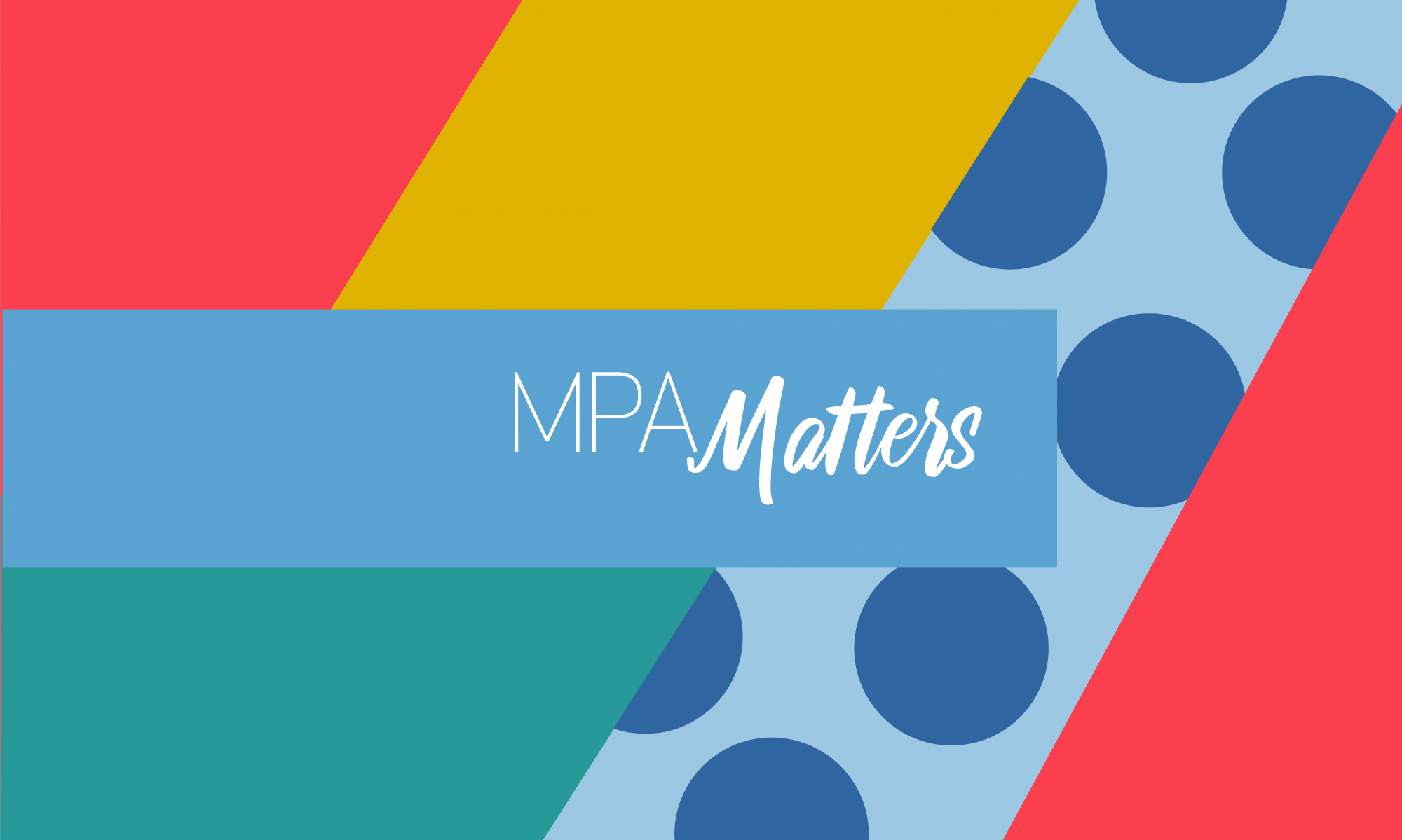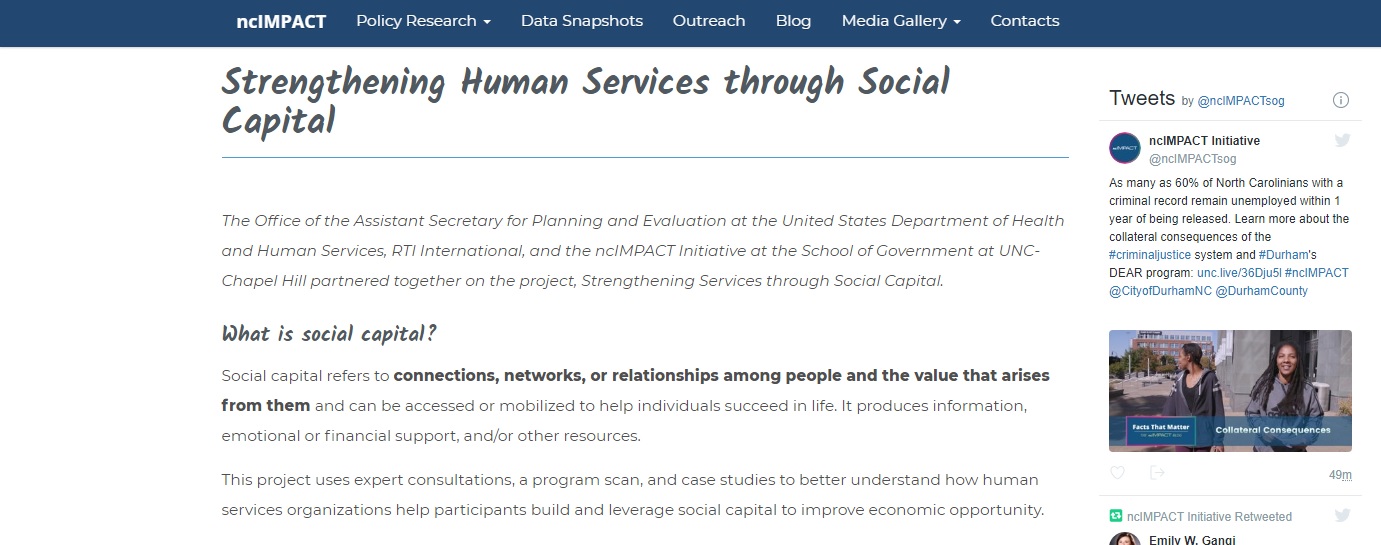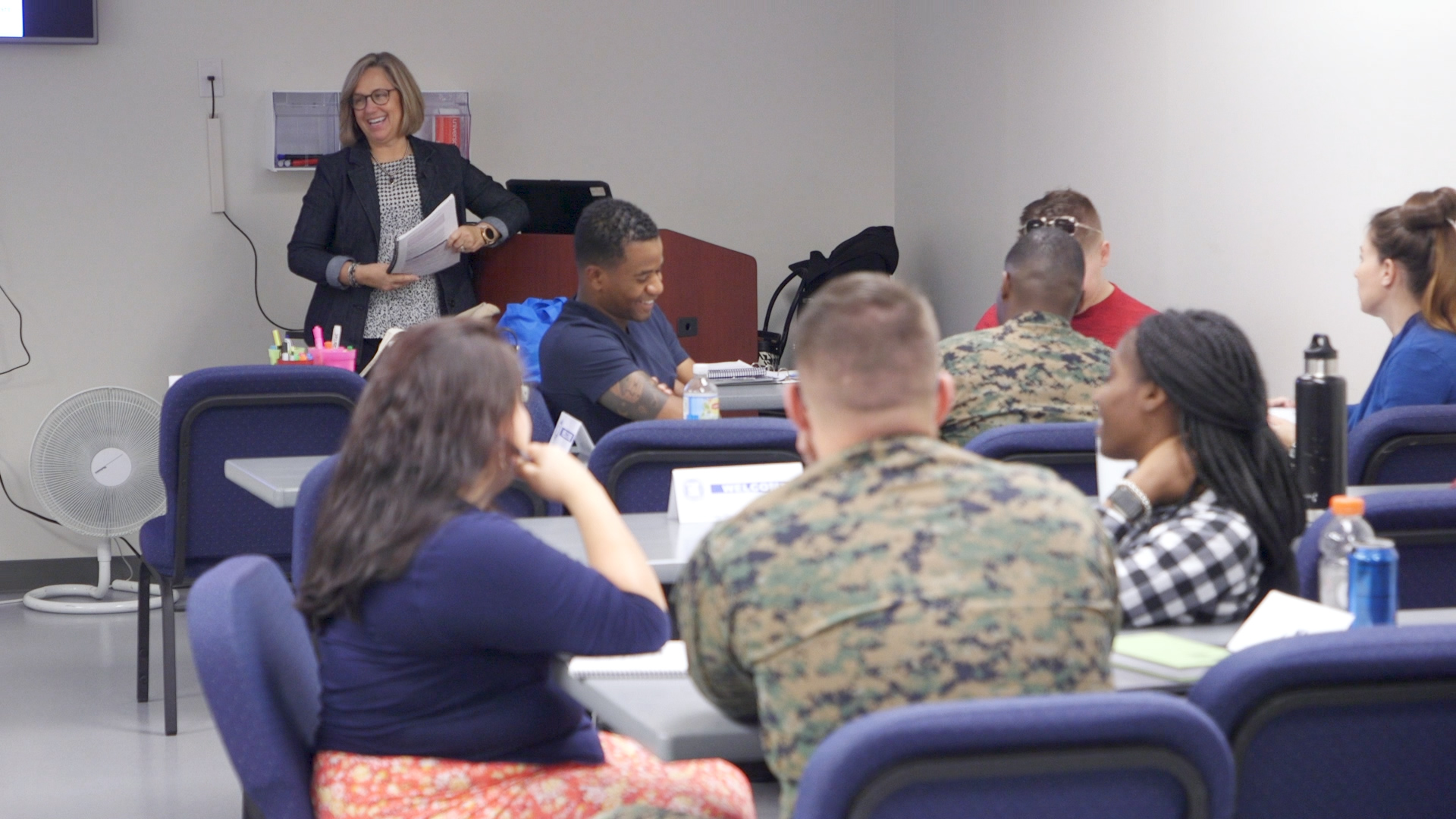As my PWE enters its final few weeks, I have been working on finishing several long-term projects, including the presentations for the Opioid Response Project that I spoke about last week. My other major product for that project has been the Online Resource Library that will be put up on its current microsite, and eventually the permanent website that will launch sometime in late fall or early winter. This library contains well over a hundred resources, in ten different subject areas compiled over the course of the two-year project by multiple participants, including past research assistants. Its purpose is to codify the resources created and shared by our community teams, as well as ones that would assist communities in undertaking a collective impact-style response to the opioid crisis. Although there is a guidebook in production that specifically focuses on the implementation of a collective impact project, these resources are substance use-specific, and can assist organizations who are in any stage of addressing opioids in their communities.
While working on this product, there have been many thumbs in this metaphorical pie. Since this project involved many staff and faculty members from across the SOG, it has a series of subcommittees, including one for the website. But because the project is being managed through ncIMPACT, there is an input and review process there as well. This means that I have had to manage the expectations and ideas of many individuals as I create this product, including people who have not had the chance to see the library or been involved in its compilation. Although this has at times made creating this resource more difficult, it has also raised useful questions about its purpose, format, and realistic usefulness in the wider community. For example, these conversations led to the decision to add a brief context statement to each resource and category, so that users do not have to actually click on or read the resource in order to see if it is useful to them. This made the library a much more time-intensive product for me, but will also make it much more helpful to the public audience it is meant to serve.
Creating products for a general audience is something that I have learned much more about during this PWE experience. I have been involved in academia for almost seven years now, and see it as my future career. My perspective, writing, and priorities often reflect that bias. Although I realize the importance of public-focused work, I have traditionally felt uncomfortable creating resources for this audience. How was I supposed to know what people wanted or needed? How was I, with an outsider’s perspective, going to be able to create something that would assist communities in a real, tangible way? Working with ncIMPACT has given me a much more nuanced perspective of making research and project results accessible to those who they affect most. I still know that I have an outsider’s perspective, but now I am able to speak with professionals and clients to understand how resources like this one can best support them. I am also more able to put myself into the shoes of others, and think critically about how to most efficiently communicate this information to a non-academic audience. Being able to learn more about the crossroads of policy, research, practitioners, and communities is helping me grow as a professional, and put the “social” in social worker and the “public” in public administrator.
Project Management
Memorial Day weekend was a welcome break from a busy two weeks at my PWE. One of ncIMPACT’s staff members is ill, changing our team’s work flow. Suddenly, an important work product for the social capital project needed support, and it fell on my shoulders to complete a draft of a literature review in just a couple of days. I also picked up other responsibilities on both the social capital and EITC project which required me to attend an additional series of meetings, pulling my time and attention in multiple directions as we worked to complete the review. I felt not only the pressure of deadlines, but also pressure to step up as a new part of a small team and assert myself as an organizational representative.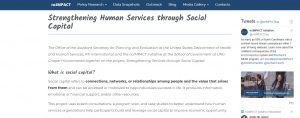
On Thursday of last week, I was talking to a friend who asked me if I was enjoying my internship. I immediately launched into an explanation of all the Zoom meetings I had, the deadlines I was up against, and the stress I was feeling because of it all. I waxed poetic about the additional stress of COVID-19, and how I hadn’t even had the chance to meet my coworkers because of it. After letting me vent, he said, “Okay, but are you enjoying it?” I paused for the first time in several days to actually think about that question. Sure, I was busy and maybe even a little overwhelmed by trying to adapt to my new role in the team so quickly. But did that mean that I wasn’t enjoying my time with ncIMPACT? Did it mean that maybe I was in the wrong place, at the wrong time?
Despite the stress of last week, reflecting on my experience allowed me to realize that this is exactly where I want to be right now, COVID aside. My supervisor and field instructor supported me both personally and professionally, including letting me flex my hours to work longer on some days so I could leave early Friday for a weekend away. Anita, ncIMPACT’s director, trusted me enough to let me attend an outward-facing meeting with clients as the only ncIMPACT representative because of my performance in earlier project meetings. And research partners valued my input during our interactions that they were responsive to a proposal I made to potentially augment a study design to collect key informant data, since COVID was affecting our ability to collect it from community members in a timely fashion.
Having more on my plate can be, rightfully, a source of worry. However, it really means that I am being allowed to dig in to the content and management of projects, meaningfully contribute to work, and grow as a social worker and public administrator. Being a part of a team that is as invested in my development as they are the outcomes of my work has been invigorating and encouraging. I can’t wait to see what else I’ll get to sink my teeth into this summer.
Making an Impact
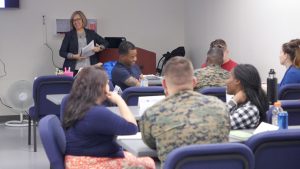 ncIMPACT Initiative is an applied public policy team that works with public officials to develop collaborative solutions to North Carolina’s wicked problems. They use an interdisciplinary approach, data driven high-quality analysis, and innovative practices to implement, evaluate, and publicize these solutions while remaining politically and policy neutral.
ncIMPACT Initiative is an applied public policy team that works with public officials to develop collaborative solutions to North Carolina’s wicked problems. They use an interdisciplinary approach, data driven high-quality analysis, and innovative practices to implement, evaluate, and publicize these solutions while remaining politically and policy neutral.
This is where I’ll be doing my Professional Work Experience. My introduction with ncIMPACT is a Zoom call with my new supervisor, Emily, on Monday at 9 AM. It’s the second to last day of exams and I’m still turning in a final tonight, but my MSW-MPA requirements mean I’m working 600 hours this summer; there’s no time to take a week or two and recuperate. The whirlwind of getting onboarded to a new organization coincides with the relief of finishing off an unusual and difficult semester, thanks to the coronavirus.
COVID-19 has blurred the lines between work and life so thoroughly that transitioning from academia to work is almost effortless, at least logistically. I’m still working from home, likely through at least the end of May, if not longer. Instead of Zoom classes, it’s Zoom meetings as I get acquainted with ncIMPACT’s work and the projects I’ll be working on this summer. Part of the SOG, ncIMPACT runs applied public policy and research projects all over the state, building collaboratives in order to implement solutions to complex community problems. I’m curious to see how ncIMPACT straddles the academia-practitioner divide, aiming for direct implementation of research rather than the traditional route of academic publishing.
I’ll be working on at least four different projects this summer: their UNC-TV series, the Opioid Response Project, their federally-funded social capital project, and the EITC in NC project. Run by two different project managers, Emily and Brooklyn, these interesting projects will keep me busy as I work with a variety of staff and clients. I’m thrilled to have found an organization that will allow me to stretch both my social work and public administration muscles, doing research, policy, assessments, interventions, and evaluations of communities and systems.
In my first week, I’m already writing blogs for UNC-TV, attending virtual town halls, and getting involved with a literature review process for the social capital project, plus a variety of meetings to learn more about how I will be contributing to each of the four projects this summer. I can’t wait to see what I learn and accomplish as I look towards my final year of grad school. Let’s get started!
Adapting to Change
We’ve all been inundated with news about the coronavirus crisis that the world is coping with these days. Throughout the ordeal, public administrators remain on the front lines of the pandemic serving in many roles at all levels of government. Living through a time of crisis is unsettling, but I am encouraged by the committed public servants I interact with each week both in my PWE and in the MPA program. Students showed up in class this week despite working twelve (or more) hour days responding to the crisis. They work in local budget offices and health departments and emergency management. They serve in state and federal agencies, preparing their communities for the ongoing situation and the recovery that will follow.
Two weeks ago (has it really been only two weeks?) I drove down Main Street in Canton on the way to my PWE and noticed that downtown was thriving. Workers stood on ladders erecting signs for new businesses. Shoppers passed through the doors of boutiques. Tourists sat on the patios of the local restaurants. Since then, measures taken in response to COVID-19 have resulted in rapid and dramatic changes. When I drove through town this morning, the sidewalks were deserted. Except for a small number of residents venturing out for supplies or employees traveling to their shifts, the streets remain noticeably quieter.
Changes brought on by this pandemic have fundamentally altered the way we live, forcing everyone to adapt. In many ways, being a student in the MPA@UNC program has prepared me for working in the current environment. As other managers, employees, and students face a learning curve transitioning to remote work and distant learning, my PWE and school work continue uninterrupted. Like everyone else, I wake up wondering what changes the day’s news will bring. And, of course, the coronavirus has disrupted much of what I do every day. I am forced to balance new responsibilities while remaining focused on finishing my PWE, writing research papers, giving final presentations, and completing final exams. For now, though, I am grateful to be part of a program that has enabled me to adjust to uncertainty and confront new challenges every day.
Navigating Competing Values in Public Service
Given the recent challenges across the United States with confederate statues, building names, and town names, public service leaders are charged with listening and navigating highly emotional and challenging spaces to best serve the public. In Chapel Hill, there were challenges with Silent Sam on campus. Silent Sam is a confederate statue that once stood on UNC-Chapel Hill’s campus in the upper quad (McCorkle Place). It was granted to the University in 1913 by the United Daughters of the Confederacy. In recent years, there has been growing controversy over the existence and placement of the statue on UNC-Chapel Hill’s campus. After years of debate and days of protest, Silent Sam was torn down the day right before the first day of classes in August 2018. (To learn more about Silent Sam’s History, click here).
However, these challenges reach farther than UNC-Chapel Hill and its surrounding towns. Currently, I work for Chatham County Manager’s Office and we are navigating the removal of a Confederate statue at our Historic Courthouse in Pittsboro, NC. Chatham is a neighboring county to Orange County (where Chapel Hill and Carrboro are located). Since March of 2019, there has been a large push to remove the Confederate Statue placed at the Courthouse in the Town’s center. (To learn more about the contention in Chatham around the monument, click here). The list of places working through these types of challenges does not end here. Given the current times, these are some of the challenges that public service leaders are continuing to face.
To support future public service leaders and current practitioners, the MPA Diversity Committee hosted a breakfast panel about managing conflict and promoting inclusion in difficult political climates on 11/6/19. The Committee brought three panelists that represented the city, county, and non-profit contexts of public service.

For the city context, the Diversity Committee invited Maurice Jones who is the current Town Manager of Chapel Hill and served as the previous Town Manager of Charlottesville during the Unite the Right rally. Beverly Scurry represented the county context by speaking about her experience as the Orange County Board of Health Strategic Plan Manager and community organizer in Alamance County. For the non-profit sector, the Committee invited Chanel Nestor who serves as an Adjunct Lecturer of Rural Sociology at NC A&T and Farmers’ Market Coordinator of the Authentically Alamance Farmers’ Market Network in Alamance County. Chanel was able to speak not only about the non-profit context, but also the rural context.
The panel served as a great opportunity to learn about implementing inclusive measures and goals into strategic planning, balancing competing values, and equity implementation in rural versus urban settings. Each member of the panel brought a unique perspective from their personal and professional experiences of navigating difficult political climates through managing conflict and continuing to promote inclusion. The panelists’ different specialties demonstrated the true intersectionality and opportunity for inclusion in public service.
MPA-ers doing cool, not government things!
When most people think MPA at UNC-Chapel Hill, they think local government. Rightfully so, we are ranked #2 in the nation for the local government area of study. However, that is not where our knowledge stops.
Like I mentioned a few blog posts ago, the MPA program has many different concentrations (see here). One of our concentrations is non-profit management. We offer courses such as Financial Management of Nonprofit Organizations and Grant Writing and Evaluation.
Click here to see a full list of the courses for our nonprofit management concentration.
Want to know some of the cool, not local government things our alumni are doing?
Check out Wad Khalafalla, a 2018 MPA graduate with a nonprofit management concentration. Currently, she serves as the Deputy Director of Spread the Vote in Virginia! This year, Wad was awarded the Fulbright U.S. Student Program award to teach English in Malaysia. We are super excited to see where life takes you, Wad!
To learn more about Wad’s award, click here.
Check out Ashley Kazouh, a 2019 MPA graduate with a nonprofit management concentration. She currently works as a policy analyst for the Public School Forum. Ashley supports the policy team by monitoring, documenting, and providing analysis of current education policy issues in North Carolina. Talk about impact!
To learn more about Ashley’s role, click here.
Check out Ebony West, another 2018 MPA graduate, who now works at the Triangle Community Foundation as the Programs and Engagement Associate. In her role, Ebony establishes and strengthens relationships with nonprofit organizations and other partners in the region. She provides the Foundation with the community and nonprofit research about systemic inequities. Amazing!
To learn more about Ebony’s role, click here.
These are only some of the options that MPA graduates have. Cara and I are always working to strengthen our relationships with nonprofits so that we can support our students! So much so that yesterday, I went to the Orange County Third Sector Alliance Nonprofit Fair. It was an awesome opportunity to network and connect with nonprofits like the Compass Center for Women and Families, Wonder Connection, the Dispute Settlement Center, and Grow Your World. Needless to say, they were excited to know that MPA-ers are interested in nonprofit work as well!
See you next time!
Student Perspective: MPA and Emergency Management
This week’s blog post looks at the MPA degree in the context of emergency management and shares the perspective of Max Dixon, a current MPA student.
One of the most crucial responsibilities of the public sector is emergency management: preparing and responding to disasters. The recent devastating effects of hurricanes in the southeast remind us how important this work actually is. When the worst happens, we have to rely on trained professionals to help us. University of New Orleans Professor and former chair of ASPA’s Section on Emergency and Crisis Management John K. Kiefer says that Emergency Management is “at its core, public management” (2013). Esteemed scholar of Emergency Management William Waugh further defines it as “the management of risk so that societies can live with environmental and technical hazards and deal with the disasters that they cause” (2000, cited in the above-linked paper).
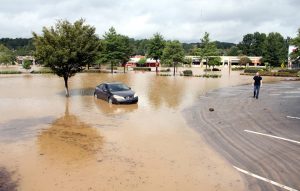
An MPA degree is important because government agencies and nonprofit aid organizations need skilled professionals who effectively and efficiently guide emergency responses, getting resources where they need to be as soon as possible to help those with immediate needs. The MPA Program can help prepare professionals for these situations. For example, we need people who are able to manage relationships across levels of government (Intergovernmental Relations), understand funding streams and reporting responsibilities (Public Budgeting), and lead and motivate teams in times of crisis (Public Service Leadership and Organizational Theory). We also need the skills to evaluate previous disasters and collect relevant data to analyze how we did and how we can do better in the future (Analysis & Evaluation, Performance Management).
Max Dixon is a current second year MPA student. His Professional Work Experience this past summer was with Cumberland County Emergency Management and he has served in many different roles in the United States Army. I asked him about how MPA courses affected his experience. He said that “organizational theory set me up well for understanding how the system is put together with overlapping layers of local, regional, state and federal resources and trying to figure out the lines of responsibility and authority.” He added that “PUBA 711 (Public Service Leadership) will likely be beneficial to anyone going straight from the MPA program into emergency management.” For those at the beginning of their careers with little experience in the field, “understanding their own leadership styles and how stress effects them should prove very useful.”
Welcome!
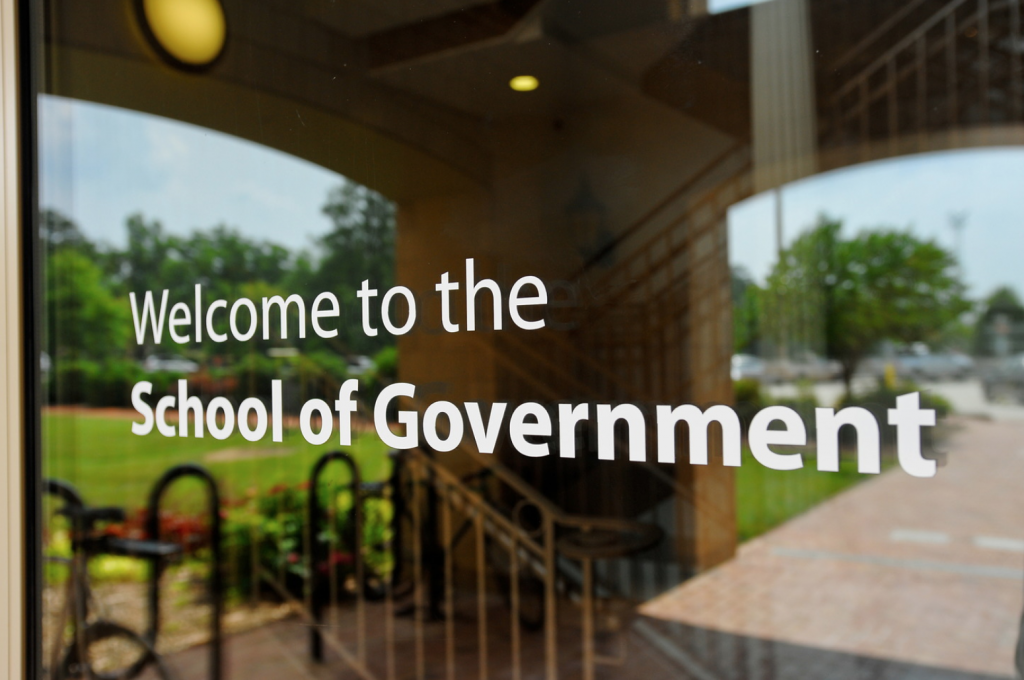
MPA Matters seeks to explore and explain all the current happenings and pursuits of those interested in public administration and public service. Special focus will be put on highlighting careers in public administration and the current initiatives of the MPA at UNC program including our faculty, current students, and alumni.
